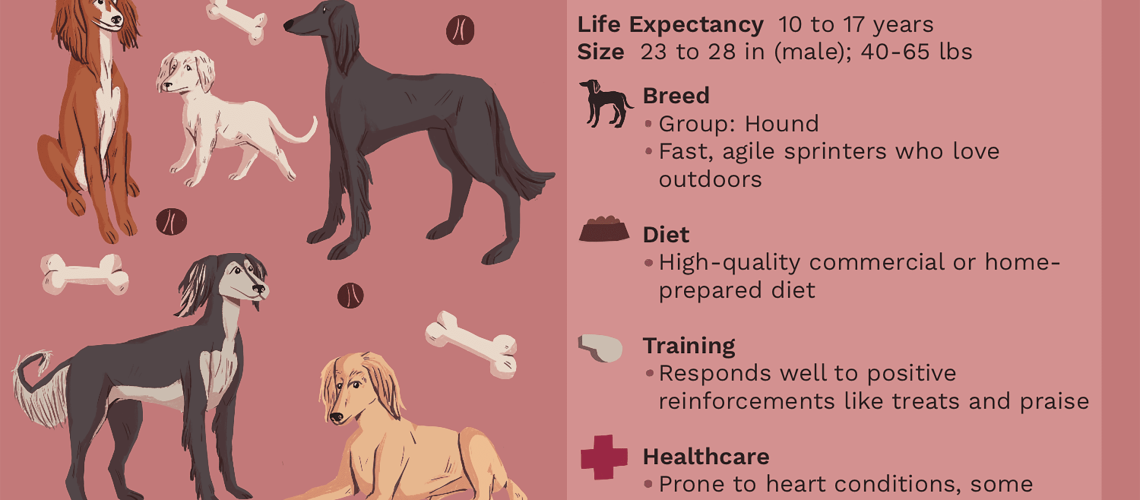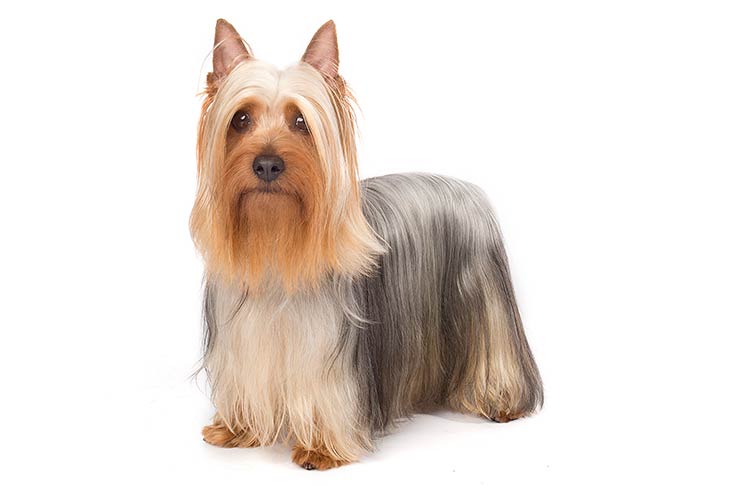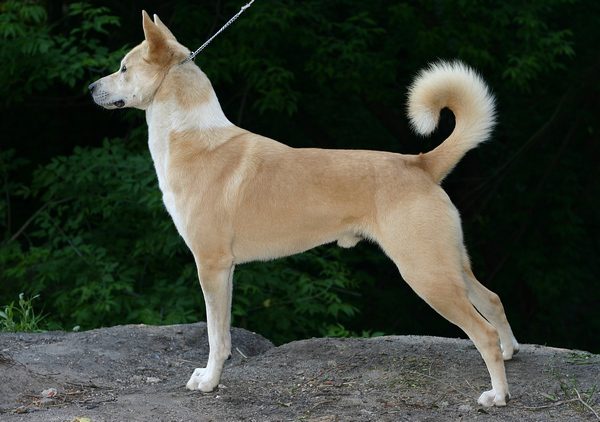Key Takeaways:
- Salukis are a breed of dog known for their elegance, grace, and speed.
- They have a strong prey drive and may not be suitable for households with small pets.
- Salukis require regular exercise to keep them physically and mentally stimulated.
- Proper grooming is essential for maintaining the Saluki's long, silky coat.
- Salukis are independent and sensitive dogs that thrive in homes with patient and understanding owners.
Are you fascinated by dogs and their unique qualities? If so, prepare to be captivated by the world of Salukis – a fascinating dog breed with characteristics that are sure to leave you in awe. Whether you're a dog lover or simply curious about different breeds, delving into the subject of Salukis will open your eyes to a whole new level of canine beauty and elegance. Understanding this topic is essential because it allows us to appreciate the diversity and wonder of the animal kingdom. From their sleek, slender bodies to their incredible speed and agility, Salukis are truly remarkable creatures. So join us as we explore the world of Saluki: Dog Breed Characteristics & Care, where we'll uncover interesting facts, practical tips, and everything you need to know about these magnificent dogs. Get ready for an adventure like no other – one that will deepen your love for all things canine!
What is a Saluki and why is it a unique dog breed?
The Saluki is a unique dog breed known for its elegance and grace. It is one of the oldest known breeds, with a history dating back thousands of years. The Saluki's unique features set it apart from other dogs. Its long, slender body and sleek coat make it look like a graceful athlete.
One of the most distinctive features of the Saluki is its large, expressive eyes. They are often described as "soulful" and give the breed an air of wisdom and intelligence. The Saluki's ears are also quite remarkable - they are long and feathered, adding to the dog's overall regal appearance.
Origin
The Saluki originated in the Middle East, where it was bred by nomadic tribes for hunting purposes. These dogs were highly valued for their speed, endurance, and agility. They were used to hunt gazelles, hares, and other swift game in the desert.
Elegance
The Saluki's elegant appearance is not just for show; it serves a practical purpose as well. The long legs and streamlined body allow the Saluki to run at incredible speeds while maintaining balance and agility. This makes them excellent hunters who can chase down prey with ease.
Speed
The Saluki has been clocked at speeds up to 40 miles per hour (64 kilometers per hour), making it one of the fastest dog breeds in existence. This incredible speed allows them to keep up with their prey even in open terrain.
Endurance
In addition to their speed, Salukis have exceptional endurance. They can sustain high-speed chases over long distances without tiring easily. This makes them well-suited for hunting in the harsh desert environment where prey animals can be elusive and hard to catch.
Agility
The Saluki's agility is another key trait that sets it apart. Their flexible bodies and powerful muscles enable them to make quick turns, change direction rapidly, and navigate through challenging terrain. This agility is essential for hunting in unpredictable environments.
Affectionate Nature
Despite their regal appearance and hunting prowess, Salukis are also known for their gentle and affectionate nature. They form strong bonds with their owners and enjoy spending time with them. Salukis are often described as loyal companions who thrive on human companionship.
Bonding
Salukis have a strong desire to bond with their owners and become part of the family. They crave attention and affection, making them excellent pets for those who can provide them with love and care.
Gentleness
While Salukis have a natural instinct to chase small animals due to their hunting background, they are generally gentle dogs. With proper training and socialization, they can coexist peacefully with other pets in the household.
Sensitivity
Salukis are sensitive dogs that respond well to positive reinforcement training methods. Harsh or forceful training techniques can be detrimental to their well-being. They thrive when treated with kindness, patience, and consistency.
How does the Saluki's appearance help it hunt better?
The Saluki's appearance plays a crucial role in its hunting abilities. With their lean and slender bodies, they are built for speed and agility. Their long legs allow them to cover great distances quickly, while their deep chests provide ample space for efficient lung capacity. This enables them to sustain high speeds over long periods, making them excellent hunters.
Additionally, the Saluki's large, expressive eyes are positioned on the sides of their heads, giving them a wide field of vision. This helps them spot prey from afar and track their movements with precision. Their ears are long and silky, which not only adds to their elegant appearance but also aids in capturing sound waves efficiently. This allows them to detect even the faintest rustle or movement of potential prey.
Overall, the Saluki's appearance is perfectly adapted for hunting. Their sleek physique, keen eyesight, and acute hearing make them formidable predators in the wild.
Speed and Agility
Salukis have a streamlined body shape with long legs that enable them to reach incredible speeds while chasing prey. Their lightweight build allows for swift movements and quick changes in direction.
Keen Eyesight
The Saluki's large eyes are positioned laterally on their head, providing a wide field of vision. This helps them spot prey from a distance and maintain visual contact during pursuit.
Acute Hearing
Their long and silky ears serve as excellent receptors for sound waves. They can rotate their ears independently to capture even the slightest sounds made by potential prey.
What are some important traits of a Saluki's behavior and personality?
Salukis possess several distinctive traits that contribute to their unique behavior and personality. They are known for being gentle, affectionate, and loyal companions. Despite their hunting instincts, they generally have a calm and reserved demeanor.
Salukis are independent thinkers and may exhibit a certain level of stubbornness. However, they are also highly intelligent and can be trained effectively with positive reinforcement techniques. They thrive on human companionship and enjoy being part of a loving family.
While Salukis are generally friendly towards people, they can be somewhat aloof with strangers. This reserved nature is deeply ingrained in their heritage as desert hunters, where they had to rely on their instincts to survive. It is important to socialize them from an early age to ensure they become well-rounded dogs.
Gentle and Affectionate
Salukis have a gentle nature and form strong bonds with their owners. They enjoy spending quality time with their families and often seek physical affection.
Independent Thinkers
Salukis possess an independent streak, which can sometimes make training challenging. Patience, consistency, and positive reinforcement methods are key to successfully training a Saluki.
Reserved Towards Strangers
Due to their hunting background, Salukis may be reserved or cautious around unfamiliar people. Early socialization is crucial to help them develop confidence and trust in various situations.
How much exercise does a Saluki need for its health?
Salukis are a highly active breed that requires regular exercise to maintain good health. As sight hounds, they have an innate desire to chase prey-like objects or animals. Providing them with sufficient physical activity not only keeps them physically fit but also helps stimulate their minds.
On average, Salukis should receive at least 60-90 minutes of exercise each day. This can include activities such as brisk walks or jogs, off-leash running in secure areas like fenced parks or large yards, or engaging in dog sports like lure coursing or agility training.
It is important to note that Salukis have a strong prey drive and should always be exercised in safe, enclosed areas or on a leash. Their instinct to chase can lead them to run off if they spot something enticing.
Regular Exercise
Salukis require daily exercise to keep their bodies and minds active. Aim for at least 60-90 minutes of physical activity each day.
Leash or Enclosed Areas
Due to their strong prey drive, it is crucial to exercise Salukis in secure, enclosed spaces or on a leash. This prevents them from chasing after small animals or getting lost.
Dog Sports
Engaging in dog sports like lure coursing or agility training can provide mental stimulation and fulfill the Saluki's natural instincts.
What grooming routine keeps a Saluki healthy and looking good?
Maintaining a regular grooming routine is essential for keeping your Saluki healthy and looking their best. Despite their long, silky coat, Salukis are relatively low-maintenance when it comes to grooming. However, some specific care practices are necessary to ensure their well-being.
Brushing your Saluki's coat once or twice a week helps prevent matting and removes loose hair. Additionally, regular nail trims are important as long nails can cause discomfort and affect their gait. Checking and cleaning the ears regularly helps prevent infections, while dental hygiene should be maintained through regular teeth brushing.
Salukis are generally clean dogs with minimal odor, so bathing them only needs to be done occasionally when they become visibly dirty or start emitting an unpleasant smell.
Regular Brushing
Brush your Saluki's coat once or twice a week using a soft-bristle brush to prevent matting and remove loose hair.
Nail Trimming
Trim your Saluki's nails regularly to maintain proper foot health and prevent discomfort or issues with their gait.
Ear Cleaning
Check and clean your Saluki's ears regularly to prevent infections. Use a veterinarian-approved ear cleaning solution and gently wipe the outer ear with a cotton ball.
Dental Hygiene
Brush your Saluki's teeth regularly using a dog-specific toothbrush and toothpaste to maintain good oral health.
Are there any special dietary needs or health problems for Salukis to be aware of?
Salukis, like any other breed, have certain dietary needs and can be prone to specific health problems. Providing them with a balanced diet that meets their nutritional requirements is crucial for their overall well-being.
Salukis are generally healthy dogs, but they may be susceptible to certain conditions such as heart disease, cancer, or autoimmune disorders. Regular veterinary check-ups are important to monitor their health and address any potential issues promptly.
When it comes to diet, high-quality commercial dog food that is appropriate for their age, size, and activity level is recommended. It should contain a balance of protein, carbohydrates, fats, vitamins, and minerals. Avoid feeding them table scraps or foods that are toxic to dogs.
It is also important to provide fresh water at all times and avoid overfeeding as obesity can lead to various health problems in Salukis.
Regular Veterinary Check-ups
Schedule regular check-ups with a veterinarian to monitor your Saluki's health and address any potential issues promptly.
Balanced Diet
Feed your Saluki high-quality commercial dog food that meets their nutritional needs based on age, size, and activity level. Avoid feeding them table scraps or toxic foods.
Fresh Water
Ensure your Saluki has access to fresh water at all times to stay hydrated.
Tips for training and socializing a Saluki puppy
Training and socializing a Saluki puppy are essential to help them become well-behaved and confident dogs. Starting early and using positive reinforcement techniques is key to their success.
Begin with basic obedience training, teaching commands such as sit, stay, come, and leash walking. Consistency, patience, and rewards like treats or praise will motivate your Saluki puppy to learn. Socialization should also start early to expose them to various people, animals, sounds, and environments.
Enrolling in puppy classes or working with a professional dog trainer can provide guidance and structure during the training process. It is important to remember that Salukis have an independent nature, so training may require extra time and effort compared to some other breeds.
Start Early
Begin training and socialization as early as possible to establish good behavior patterns from the start.
Positive Reinforcement
Use positive reinforcement techniques such as treats or praise to motivate your Saluki puppy during training sessions.
Puppy Classes or Professional Trainer
Consider enrolling in puppy classes or working with a professional dog trainer who has experience with sight hounds like Salukis.
Consistency and Patience
Be consistent in your training methods and patient with your Saluki puppy. They may take longer to learn certain commands due to their independent nature.
In conclusion, Salukis are a unique and elegant dog breed known for their speed and grace. They require regular exercise, grooming, and love to be happy and healthy companions.
Are Salukis high maintenance?
Salukis are gentle and sensitive dogs that are independent thinkers. They require minimal grooming and care as long as they receive regular exercise.
Are Salukis good house dogs?
Salukis are calm and quiet when indoors, they are very gentle when interacting with children, and they get along well with other dogs. While they can serve as adequate watchdogs, they are not effective as protection dogs. It is important for Salukis to have the opportunity to run and exercise vigorously every day. If given this opportunity, they are moderately obedient, as long as their desires align with yours.
What are the characteristics of a Saluki dog?
Salukis are beautiful and sophisticated, displaying both grace and speed. They usually weigh between 35 and 65 pounds and stand 23 to 28 inches tall, with females being slightly smaller than males. These medium-sized dogs have a tall and slender appearance. They are athletic and may appear thin and young when they are still puppies.
What are the health issues with Saluki?
Salukis are at risk for various health issues including heart problems, haemangiosarcoma (a type of cancer affecting blood vessels), and hip dysplasia (a condition where the hip joints are not properly developed, leading to arthritis in the future).
Can Salukis be left alone?
If you have a busy schedule and are away from home for long periods of time, it may not be suitable to have a Saluki as they do not like being left alone all day. These slim and tall dogs prefer to be with their owners as much as possible. Salukis need a minimum of two hours of exercise each day, but they do not require much grooming.
Are Salukis agressive?
Salukis are not suited to be strong guard dogs due to their calm and sensitive nature. They are not known for being alert or aggressive.

















